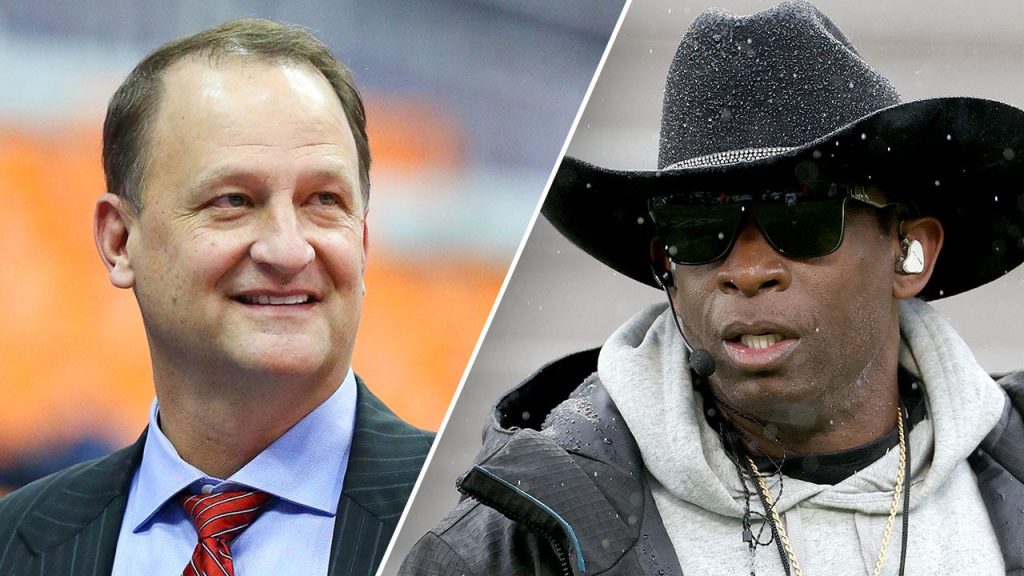OutKick host Dan Dakich recently defended Colorado Buffaloes football coach Deion Sanders amid criticism over his decision to prohibit Denver Post columnist Sean Keeler from asking questions during press conferences. Sanders and the program have banned Keeler from questioning due to his past coverage of the program, although Keeler is still allowed to attend football-related activities. Dakich, a former basketball coach at Indiana, spoke out about the controversy on his show, “Don’t @ Me with Dan Dakich,” expressing his view that personal attacks have no place in sports criticism. He also addressed criticism Sanders faced from panelists on ESPN’s “Around the Horn,” suggesting that Sanders was justified in taking a stand against Keeler’s behavior.
Dakich emphasized the importance of holding reporters accountable and criticized Keeler for taking things to a personal level in his coverage of the program. He highlighted the trend of reporters complaining about being held accountable while engaging in personal attacks themselves. Dakich’s comments reflected a sentiment that Sanders was right to stand up to Keeler and that the media should not be exempt from scrutiny. He singled out the behavior of certain reporters, such as Gregg Doyel, as examples of individuals who may be held accountable for their actions.
The controversy arises from conflicting views on the role of the media in sports reporting and the boundaries that should be respected between journalists and athletes/coaches. Sanders’ decision to ban Keeler from asking questions is seen as a way to protect the program from what he perceives as unfair treatment and personal attacks. While some may see Sanders’ actions as overly harsh or an infringement on press freedom, others, like Dakich, view it as a necessary step to address unethical behavior in sports journalism.
The incident highlights broader issues within the sports media landscape, including the ethics of reporting, accountability in journalism, and the relationship between reporters and subjects. Some may argue that Sanders’ ban on Keeler sets a dangerous precedent for limiting press freedom and stifling critical voices in sports coverage. Others may see it as a justified response to what they perceive as negative and misleading reporting by Keeler. The debate is ongoing, with different perspectives contributing to a complex conversation about the rights and responsibilities of both journalists and those they cover in the sports industry.
Dakich’s defense of Sanders reflects a belief in holding journalists accountable for their actions and ensuring that criticism remains constructive and professional. While the incident may have sparked controversy and debate, it also raises important questions about the role of the media in sports, the boundaries of journalistic behavior, and the relationship between reporters and subjects. Ultimately, the outcome of this situation may have lasting implications for how athletes and coaches interact with the media, the standards of sports journalism, and the ethical responsibilities of those involved in covering sports news.
As the situation continues to unfold, it will be important to consider the perspectives of all parties involved and to reflect on the broader implications of this incident for sports reporting and media ethics. Dakich’s comments shed light on the complexities of the issue and the need for a nuanced understanding of the roles and responsibilities of journalists, athletes, and coaches in the realm of sports coverage. By engaging in thoughtful dialogue and reflection, stakeholders in the sports industry can work towards fostering a culture of respect, integrity, and accountability in media relations.


